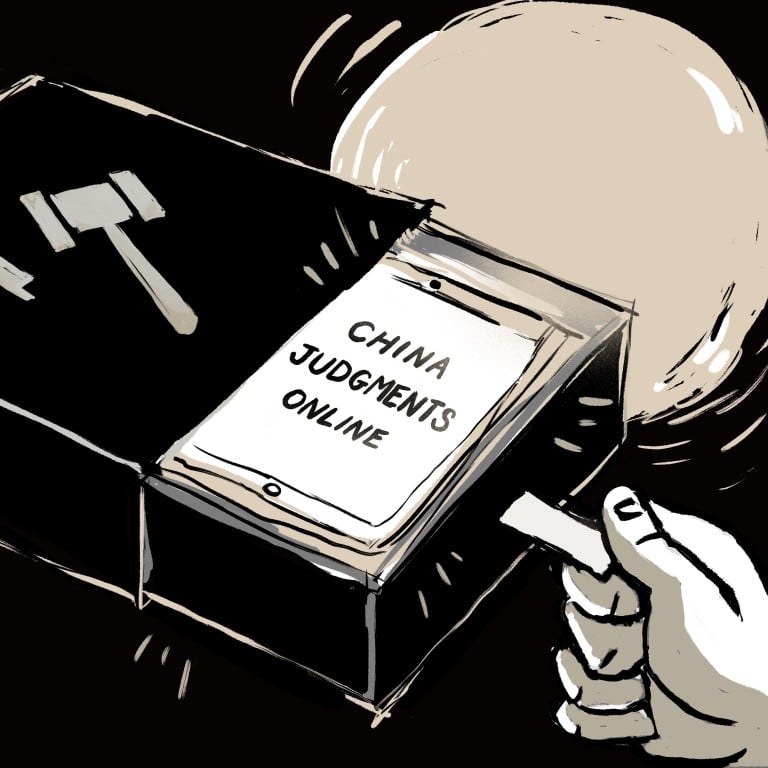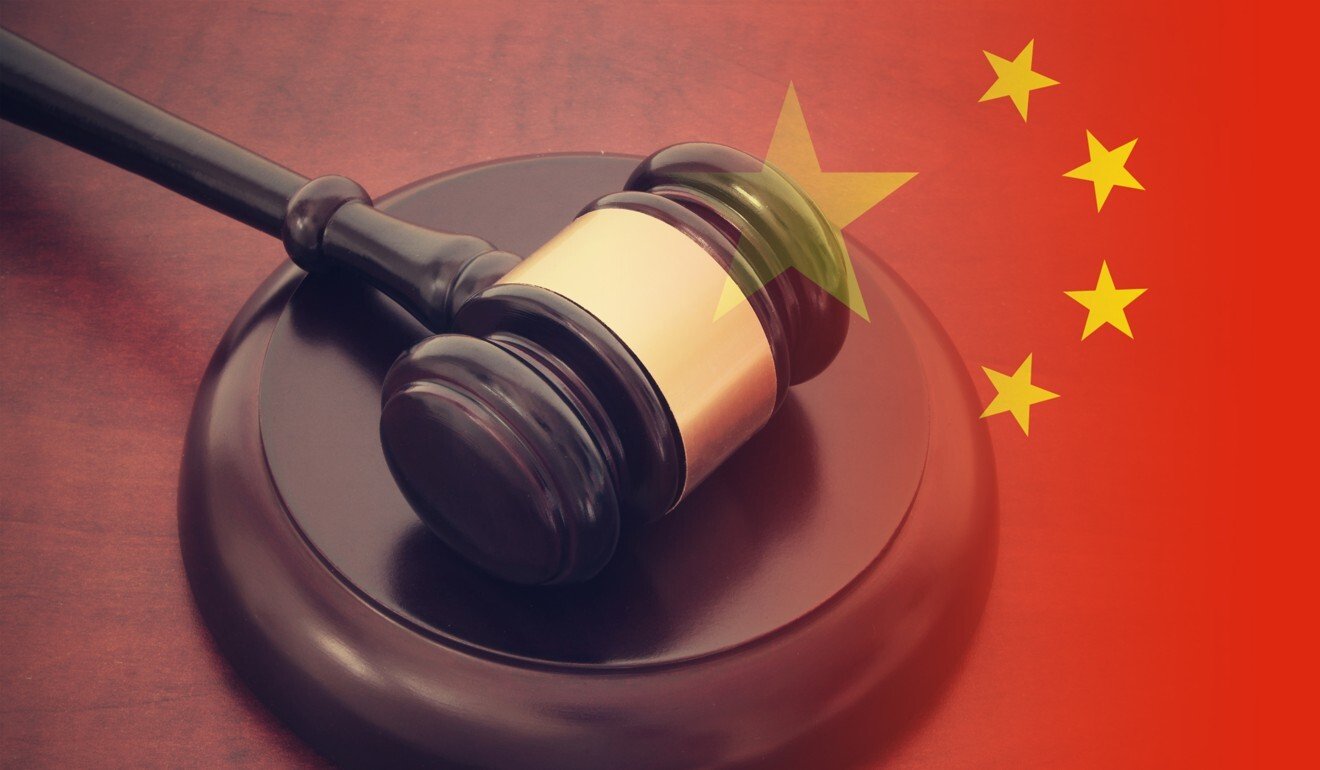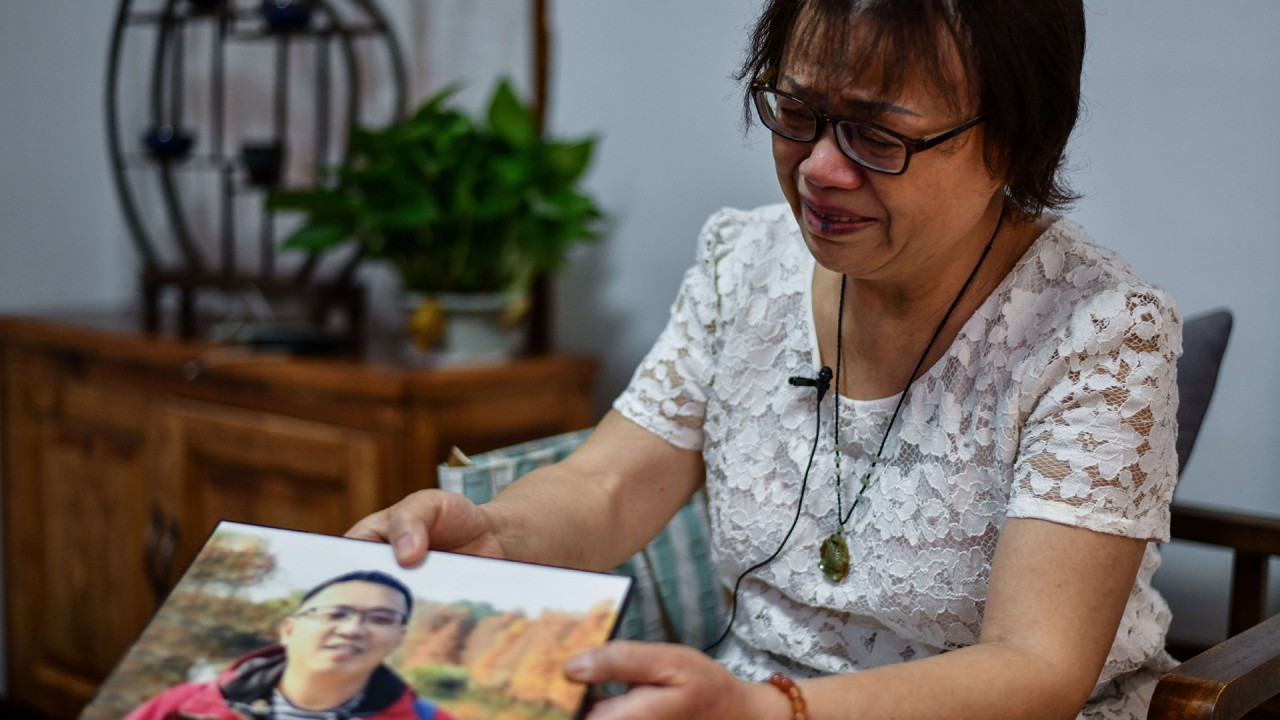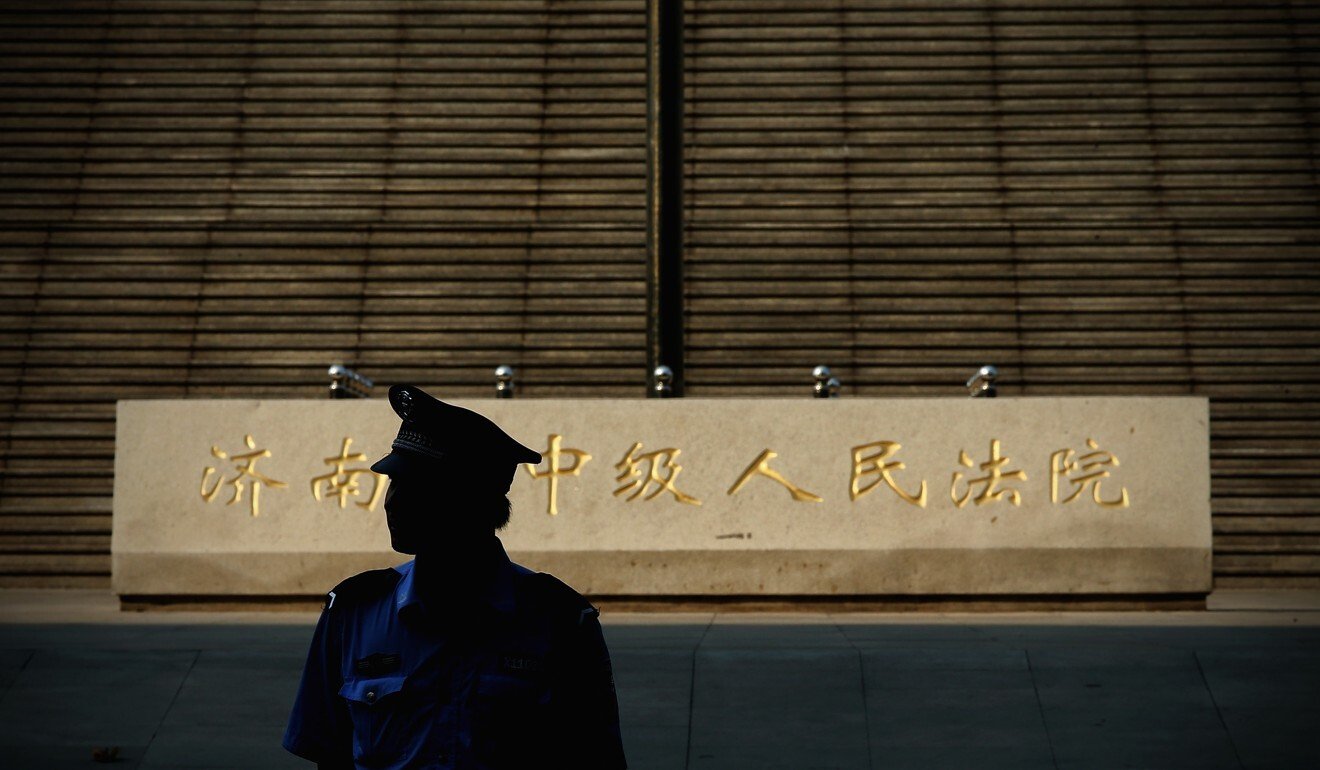
How China’s supreme court tried to open up the legal ‘black box’ to let in the light
- A database of rulings designed to improve public confidence in the judicial system offers unprecedented insights into the workings of the courts
- Lawyers say details of many sensitive cases are being withheld or removed, but the reform is helping to make the system fairer and more transparent
This is the third in a series by the SCMP looking at how China’s legal system has changed over the decades and some of the challenges it faces today. Here, Mimi Lau and Echo Xie look at an attempt to boost public confidence in the courts by publishing their procedures and rulings.
The case of a Chinese policeman who was jailed for raping a woman while on duty was largely kept out of the public eye when he was first convicted last August.
But four months later, after Zhang Yunlong lost an appeal against his 4½-year sentence and details of the 2019 attack were published on a national database run by the country’s highest court, the story quickly became headline news.
Details of the case – Zhang had sent his colleagues back to the police station with two suspects while questioning the woman alone in a hotel room in Hefei late at night – triggered a heated debate about his relatively lenient sentence and the abuse of power by law enforcers.
In the past, cases such as Zhang’s might never have come to light because of the lack of transparency within a system that is often described as a “black box” by the public and laced with systemic corruption and rampant abuse of power.
Beijing Financial Court gets permission to handle lawsuits against foreign firms
Collecting court decisions and opinions was also difficult as verdicts were only available to the parties involved.
But China Judgments Online, the Supreme People’s Court database that brought details of the policeman’s trial and conviction into public view, was designed to counter these problems and improve public confidence by offering unprecedented levels of transparency.
Wei Rujiu, a Beijing-based lawyer, said getting access to judicial decisions had been virtually impossible in the past but the situation had improved since the database, the world’s largest collection of judicial decisions, came online.
“This has played a significant role in promoting justice not just for lawyers but for the public too,” Wei said.
“By publishing the trial procedures, court decisions and enforcement information, the public can see the judges’ efforts and better understand the ruling. The judicial process will no longer be a ‘black box’ and judicial credibility will be significantly improved,” Zhou told state media at the time.

04:35
Chinese #MeToo pioneer takes prominent TV host to court over alleged sexual harassment
Under the initiative, courts across the country are required to upload their decisions to the Wenshu.court.gov.cn database, although cases that are deemed sensitive – including those that involve the death penalty, minors, state secrets, national security, personal privacy and divorce – are excluded.
Although critics have complained that implementation is patchy and any cases deemed “inappropriate” remain hidden from view, the initiative offers a rare opportunity for lawyers, researchers and the public to scrutinise the work of the courts and compare judgments for similar cases in different parts of the country.
Rachel Stern, professor of law and political science at the University of California, Berkeley has been studying the database and said China’s decision to publish decisions was part of a worldwide trend towards increased judicial disclosure to combat corruption and boost public trust in courts.

Stern said this was a trend that spanned both common and civil law systems and included both democratic and authoritarian systems, ranging from Vietnam and India to Slovakia and France.
China Judgements Online covers criminal, civil and administrative cases, and has searchable features that allow users to track judgments according to the type of case being heard.
As of this week, the database has been visited more than 5.8 billion times while hosting more than 117 million judgments, mostly criminal cases. About 50,000 new judgments are added daily.
China’s court changes may create world’s first AI-integrated legal system
While transparency on this scale is unprecedented in Chinese legal history, the database is far from complete and comes with a growing list of problems.
The case of Zhang, the rapist police officer, could have been seen as a sign of how well the system was working, but the judgment was swiftly redacted after it became a major news story.
Legal experts said this practice was common and cases that should not be covered by the exemptions were withheld or removed on a regular basis.
Stern noted that the rules on disclosure gave the courts considerable leeway to withhold documents from public view.
“Almost all Chinese lawyers can think of a case they’ve handled that never showed up on the [supreme court] website. Courts have the freedom to hold back any case they deem ‘inappropriate’ to publicise, a provision that is certainly used to avoid releasing cases that are considered politically sensitive,” Stern said.
Still, in 2016 a revision was introduced to expand the range of publicly available court documents. Courts are also required to release case numbers and explain why some judgments are deemed unsuitable for publication.
In a forthcoming law review article by Stern, Columbia Law School professor Benjamin Liebman, and a number of their colleagues, observed that local courts were struggling to comply with the 2016 supreme court guidelines on judgment disclosure. For example, the 2016 guidelines ask courts to disclose the case number of any case not put online, with a written explanation of why the case was not made public.
“Yet we found only 4,718 examples of public notice of non-disclosure posted by the end of August, 2018, and these notices were concentrated in just 43 courts,” the authors said.
They also highlighted how local courts had released documents that the supreme court has asked them to shield from public view, including 91,132 divorce decisions put online in 2017. That was despite divorce cases being banned from release since October, 2016.
Chinese court awards record payout to chemical firm in trade secrets case
Tsinghua University law professor He Haibo, a long-standing advocate for the database, said the measure was a tangible achievement from the movement for judicial reform.
“Knowing their decisions are being published online, judges will think twice when they make decisions. This will promote justice,” He said.
“If they can refer to previous rulings on difficult cases posted online, the court system will maintain uniformity in judgments and this will also promote justice.”
A paper written by He and two of his colleagues found that the proportion of cases uploaded to the database had increased since the rules were revised in 2016.
In 2017 Chinese courts issued rulings in 23 million cases, about 14 million of which – around 60 per cent – have been uploaded to the database, according to He’s research.
Some 86 per cent of those cases were uploaded by lower level courts, 12 per cent from intermediate courts and the rest of them from provincial and regional high courts as well as the Supreme People’s Court.
His research also highlighted regional disparities, with Qinghai, Sichuan and Jilin provinces uploading a higher percentage of cases, while Xinjiang, Beijing, Shanghai and Guangdong were low on the list.
“One of the main reasons why [places like Beijing and Shanghai] are struggling to catch up with the others is because of their huge caseloads,” the researcher said.

03:36
Families of coronavirus victims accuse China of blocking coronavirus lawsuits
He also noted that many major court cases that attracted significant public interest had been left off the database, mainly because they contained sensitive information. The researchers found that just nine out of 318 cases He’s team flagged as controversial in 2017 had seen their first instance decisions published.
“Selective uploading is a problem we need to address now,” said He, who suggested that all decisions made by lower level courts should be made public while supreme court decisions should be uploaded except for those involving the death penalty.
However, He said top judicial officials were aware that the courts should not race ahead of other government departments when it came to transparency.
“It is impossible to have 100 per cent disclosure for court decisions in any country. At the current stage, courts need to consolidate the reform progress accumulated over the years and carry it forward rather than going backward,” He said.

While it is hard to measure the number of cases withheld from the public or removed after publication, international legal scholars have praised the initiative for improving transparency in a civil law system that has traditionally been difficult to access or understand.
Liebman, from Columbia Law School, said the supreme court deserved credit for the progress it had made.
“The scale of what is available represents an important step in the direction of transparency,” he said. “I think it’s fair to say that this change is having a big impact on judges and on lawyers. It is now far more common than in the past to consult prior cases. The goal is to push forward more standard application of the law.
“Steps towards increased transparency do have a positive effect. The fact cases are being made public can also help courts to push back against attempts at external interference.”

03:34
In China, judges become live-streamers as court auctions go online
Stern added that the reform had helped both the public and lawyers to see how courts handled similar legal problems in the past.
“For would-be plaintiffs, looking at prior cases will shape their expectations and help them decide whether it is worthwhile to bother going to court,” she said.
As for lawyers, access to previous decisions, especially those from the same province, was now a common research strategy that shaped their legal arguments, she added.
Chinese divorce court orders husband to pay wife for years of housework
“Even though China is not formally a precedent-based legal system, some lawyers will even cite previous cases in legal briefs, or turn in copies of previous cases to judges, in the hopes of persuading the court that the same logic should hold in their case,” Stern said.
Wei, the Beijing-based lawyer, noted that while uploads were often delayed and some case details had been deliberately omitted “this is still better than nothing”.
“I really do think this database is making a contribution to fostering justice in many ways,” he said.
Additional reporting by Guo Rui





